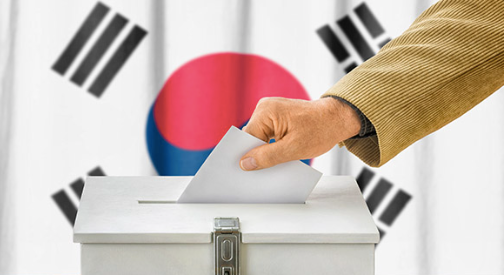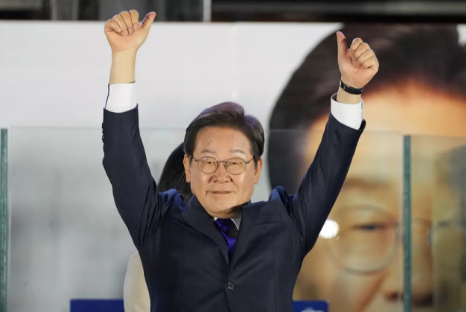
May 12, SEOUL, – South Korea’s presidential campaigns officially kicked off Monday, with candidates vowing to unite a deeply divided country and revive its stalled economy. The snap election on June 3 was prompted by President Yoon Suk Yeol’s April ouster, after the Constitutional Court upheld his impeachment over a brief martial law decree in December.
The vote comes amid economic strains and political turmoil. Asia’s fourth-largest economy has seen slowing growth and spiralling U.S. tariffs on key exports. Many voters cite rising living costs and unemployment as pressing concerns after months of partisan strife following the crisis.
Leading the race is opposition leader Lee Jae-myung (Democratic Party), who narrowly lost last year’s election. Lee has pledged to fix “economic polarisation” and spur growth with massive state investment in new technologies and talent. At campaign rallies he presents himself as a unifier – declaring he will be “the leader of unity” to help Korea weather a U.S.-driven trade crisis – and his party’s platform emphasizes AI and cultural industries as engines for growth. Lee has also urged caution on trade talks with Washington, warning against rushing a deal under current tariff pressures.
His main rival is Kim Moon-soo of the conservative People Power Party, a former labor minister. Kim officially secured his party’s nomination last week after an internal struggle. He kicked off his campaign at a Seoul market, promising to revive small businesses in the slowing economy. Kim’s platform centers on job creation and deregulation. He says he would press U.S. President Donald Trump for immediate tariff relief in a summit meeting and vows to deepen South Korea’s security alliance with Washington.
Other contenders include centrist Ahn Cheol-soo (People Power), who promises technology-driven growth. Ahn has pledged to develop new “growth engines” such as artificial intelligence to counter external shocks. Veteran conservatives like former Seoul Mayor Oh Se-hoon, Daegu Mayor Hong Joon-pyo and ex-Justice Minister Han Dong-hoon have also declared bids, but none match the support for Lee and Kim in the polls.
Analysts say that whoever wins will inherit a polarized nation and a flagging economy. Both front-runners insist the U.S. alliance will remain key. Lee has emphasized that “the South Korea–U.S. alliance is important” and that Korea’s national interest must come first. The new president, elected on June 3, will face the twin challenges of healing domestic rifts and steering an export-driven economy through global uncertainty. Keep Reading Questiqa.com for more news.




